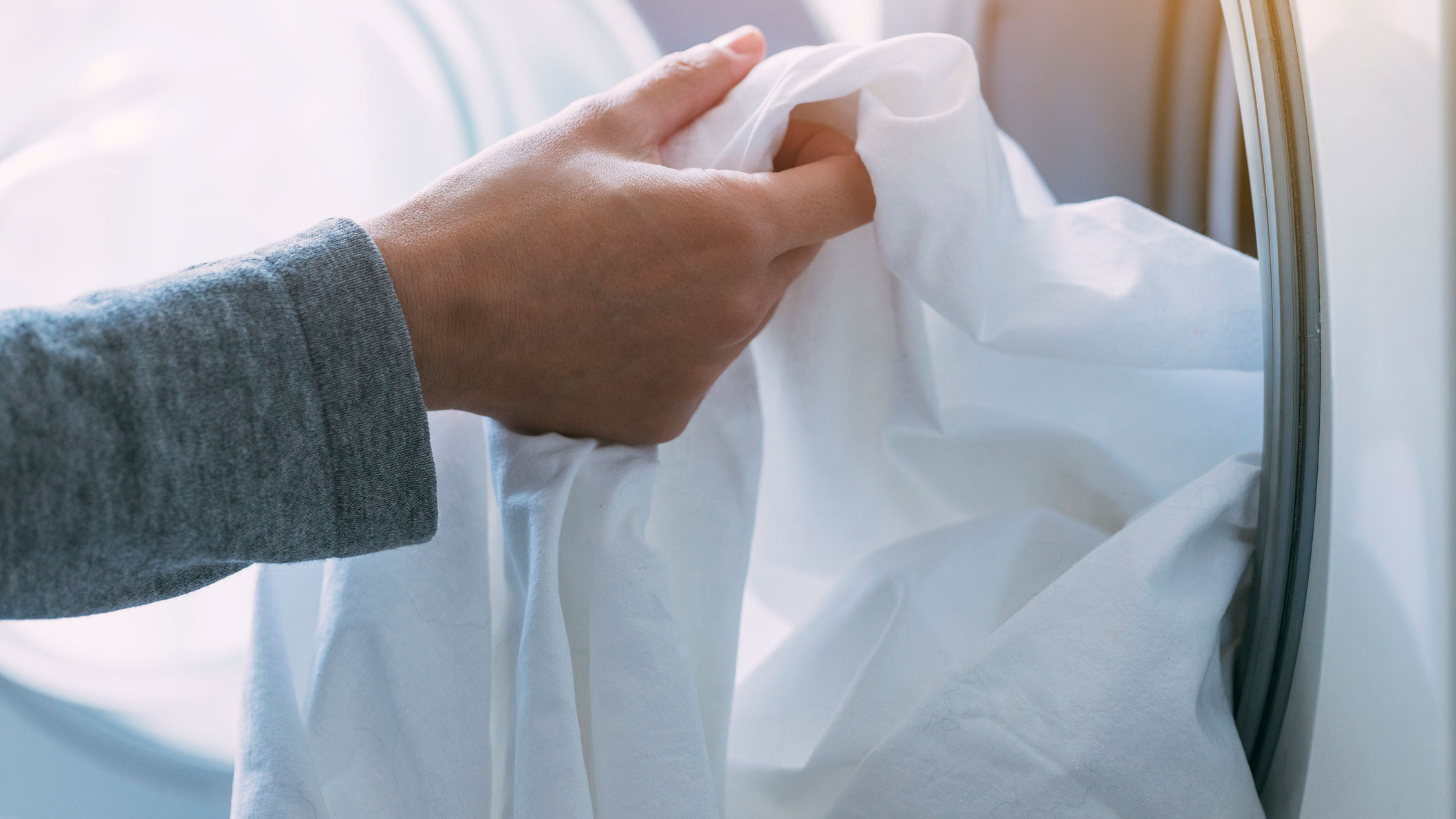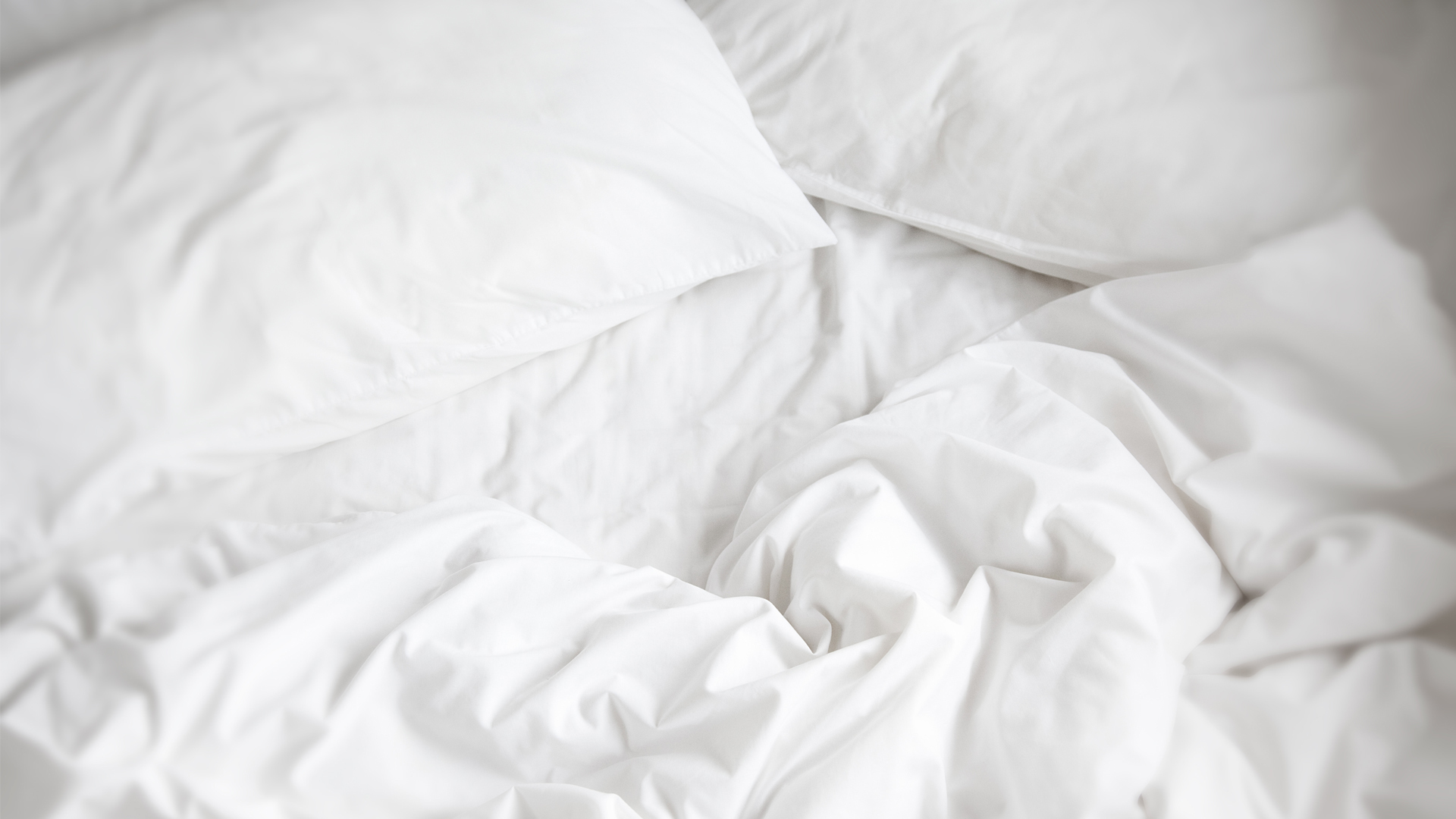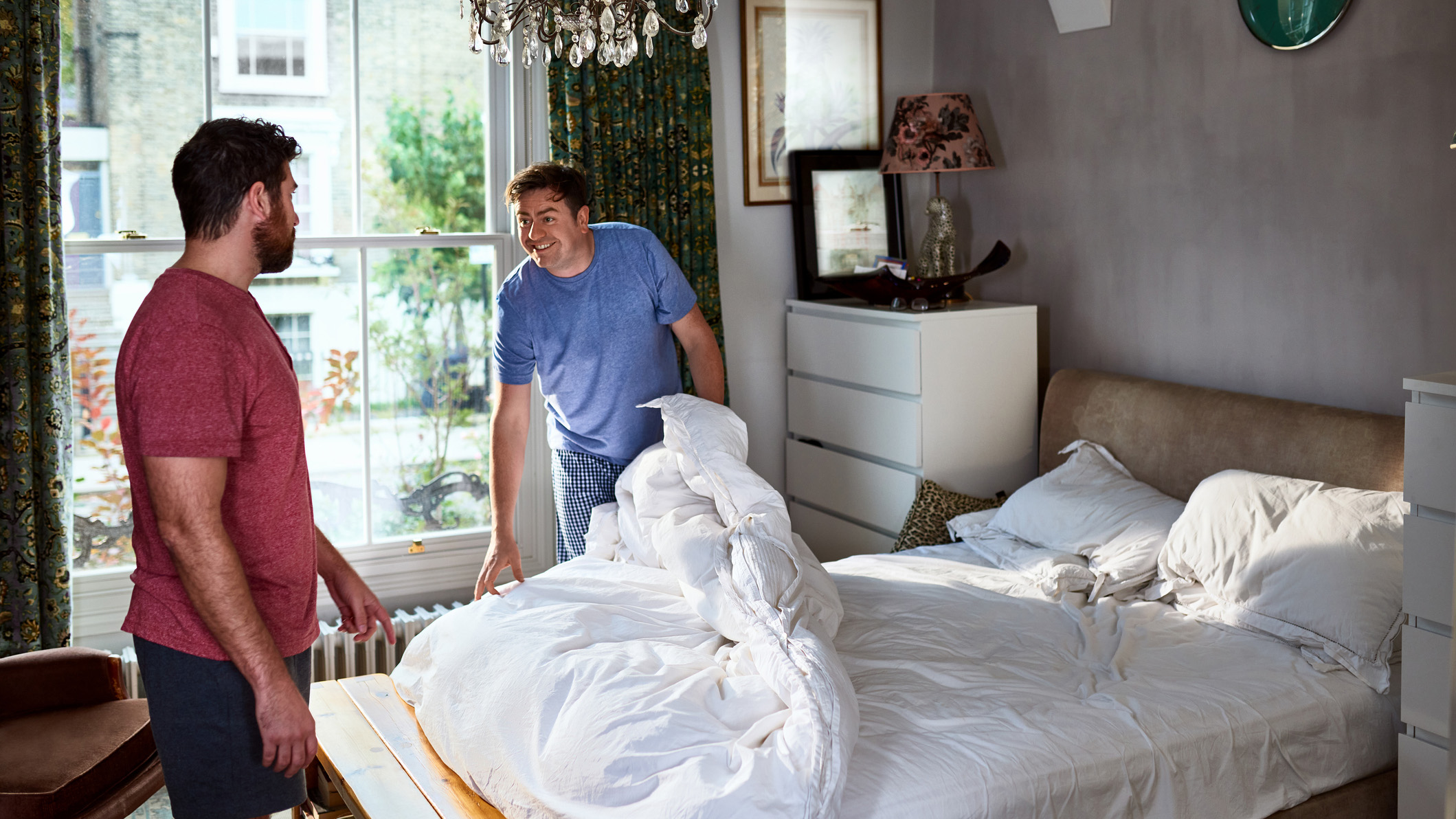How often should you wash your bedsheets? It may be more often than you think
How often should you wash your bedsheets? The answer is probably more often than you do...

Sign up to receive the latest news, reviews, buying guides and deals direct to your inbox
You are now subscribed
Your newsletter sign-up was successful
Whether or not you have a cleaning routine and schedule, you might be wondering how often you should wash your bedsheets and linen.
It's an easy chore to skip - if you're anything like me, you might regularly put off stripping your bed and changing your sheets out of pure laziness (can we all agree that changing a duvet cover is basically a workout?!).
However, the importance of having clean linen on your bed can't be overstated. I asked Laura Mountford, aka Laura Cleanaholic on Instagram, for her thoughts, and she said, "Dust mites feed off of the dead skin cells we shed every day - so definitely best to keep them at bay by washing your bedsheets and pillowcases regularly". Yikes. BRB, I'm off to put a wash on.
If you're looking to upgrade your laundry setup, check out our guides to the best washing machines, best top-load washers, best front-load washers, and best washer-dryer combos.
How often should you wash your bedsheets: Factors to consider
All in all, the general advice is to wash your sheets every one to two weeks, however, depending upon numerous factors, you may choose to clean your bedsheets more frequently.
It's always advisable to wash your bedding every two weeks, and certainly no less than that, but many probably should wash their bedsheets once a week.
Consider the following factors which impact the cleanliness of your bedsheets for instance:
Sign up to receive the latest news, reviews, buying guides and deals direct to your inbox
1. What you wear to bed
Whether or not you wear pajamas to bed will affect how much your skin and sweat have direct contact with your sheets.
2. If you own pets
Whether you have animals and pets who sleep on or within the bed sheets; dirt, germs, and any unpleasant beasties living on your animal will certainly compromise the cleanliness of your bedsheets.
3. How frequently you wash
How often you tend to bathe or shower, and whether morning or evening; if you wash right before bed, you're less likely to bring germs, grime, and dirt into bed with you.
4. How often you go out
Whether you frequently go out and spend significant amounts of your time outside of the home; especially if you use public transport, live in a city, or commute to a communal workplace.
If this is the case for you, I suggest you remove the clothing you wear out as soon as you're home and put it into the laundry. Then take a shower or bath to fully cleanse yourself before you jump into bed.
As I myself have also been in this position for a good decade of my life, I would also advocate having a capsule wardrobe of clothing you keep as your comfortable home wear, to lounge and relax in, so you know that whatever you choose to wear at home is clean of any germs or nasties from the public spaces you've frequented.
5. Creams or oils
If you wear makeup or heavy creams, fake tans, body oils etc. in bed; it's advisable to remove any makeup before bed for your skin health more than anything but also to elongate the cleanliness of your pillowcase. You may also wish to apply evening skincare at least an hour prior to getting into bed, so your skin can absorb the moisture and oils, therefore minimizing any residue soaking into your sheets.
6. Health concerns
If you suffer from any skin conditions, allergies, or reoccurring infections; this is a high-risk factor health wise, so if this is the case, it's recommended to wash your sheets much more frequently; ideally once every few days, but no less than once a week.
The above factors are important to consider when assessing how frequently you should wash your sheets because these will all impact the amount of germs, and the soil level that your sheets are exposed to.

How often should you wash your bedsheets?
How often should you wash your bedsheets?
In simple terms, the answer to that question is every week. I know, I know, that sounds like a lot, and your sheets won't always look grimy after a week, but remember that bit about the dust mites?
Laura Mountford said, "[Pillowcases and bedsheets] should ideally be washed weekly to keep them fresh and hygienic. As we sleep on them every night, they have a build-up of oils, sweat, and dirt, which can cause bacteria, allergies, and even irritation to skin and hair."
So even if you don't think your linen is dirty, after a week, the chances are your sheets have accumulated all sorts of dust, particles, bacteria, and other nasties. Just think back to all the times you've lied down on your bed wearing socks and clothes you were wearing outside...
I don't know about you, but I've been convinced to add cleaning my sheets to my weekly cleaning routine. To make sure you can manage a weekly wash, investing in at least a second set of bed linen is a good idea so you can alternate between the two sets when one is in the wash.

How to wash your bedsheets: Top tips
If your washer has a specific sheet cycle, make sure to use it to wash your linen. This will make sure they're washed at the appropriate temperature and speed to properly sanitize them without causing damage.
In the event you don't have a specific cycle, consult your washer's user guide or use the cycle recommended for your bedsheets' fabric type (linen, cotton, satin, etc). Keep in mind that fragile fabrics like satin or bamboo might need a more gentle cycle, while cotton sheets can probably just go through your regular ones.
As we've discussed above, sheets can get pretty grimy pretty fast. Especially if someone in the house has been ill, you might want to consider using a sanitizing cycle to wash them if your washer has that option.
Reviews
Whirlpool 24" Stainless Steel AI Dishwasher Review
Napoleon TravelQ PRO285 Portable Gas Grill review
Dreame L40 Ultra Robot Vacuum Cleaner and Mop review: almost hands-free cleaning
GE Profile Smart Mixer with Auto Sense review: a powerful, thorough mixer
Echo eForce DPB-2500 review: a leaf blower as a snow removal tool?
DPAS-2100 + Pro Paddle Attachment review: a new way to remove snow this winter?
Midea MAD53109APK 5.5QT Air Fryer review: a small, simple, and highly effective option
Eureka J15 Pro Ultra Robot Vacuum review: hands-free cleaning for busy families
Drying your bedsheets is straightforward. Unless they're made from a fabric that doesn't fare well in the dryer (like satin, for example), you can throw them in there on a low-heat cycle. Avoid drying them for too long or at too high a temperature, as that is likely to damage them. To help even drying, you can use wool dryer balls.
Laura Mountford's book Live, Laugh, Laundry will be released in the UK on April 13th, 2023.
How often should you wash your bedsheets: Final Thoughts
As we've discussed, we know it's a chore to change bedding, but there is nothing more luxurious than snuggling up in clean fresh bed linen after a long day.
If in doubt, wash your bedsheets once a week, although you may wish to wash them more frequently depending on your circumstances and situation. At a push, two weeks is okay, but not ideal, so aim for once a week to wash those bedsheets.
To elongate the cleanliness of your sheets even further, follow these top tips; shower or bathe before bed, remove any makeup, and avoid heavy oils or creams. Keep pets in the kitchen or utility room at night to avoid them jumping up on the bed. Use mattress and pillow protector sheets to limit direct soiling on the bedding. Avoid re-wearing clothes you have worn out of the house and don't sit down on your bed wearing dirty clothes. Instead, regularly launder your outdoor clothes, and keep a separate collection of indoor clothes to wear exclusively at home.
Keep a few spare sets of bedding so that you can easily change the sheets at the same time you strip the dirty linen off the bed. Big sales are great for stocking up on affordable bed linen sales. Always opt for 100% cotton if you can, as it's more breathable and comfortable.
Read our guide on how to wash your clothes in a washing machine for more care instructions and tips.

Mina is the former Deputy Editor at Top Ten Reviews. She worked with section editors to create accurate, detailed, and in-depth reviews to populate our buying guides. She has degrees in Linguistics and Investigative Reporting and is also a freelance writer and editor. When she's not testing kit and agonizing over commas, Mina can be found reading, running, eating good food, and drinking wine.
- Emily DiamondHomes Editor
